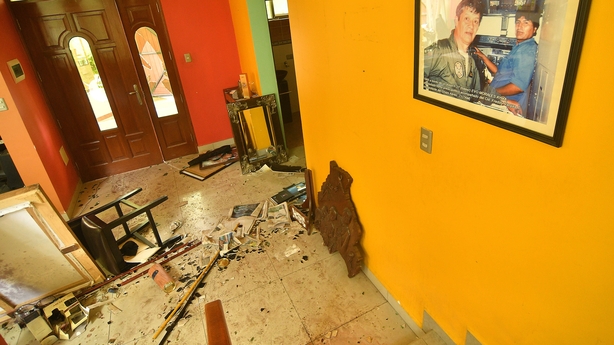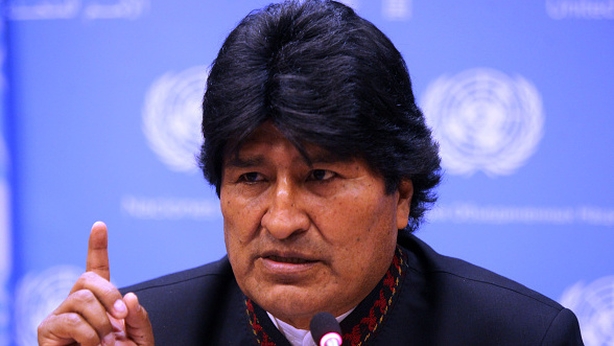Mexico has granted asylum to Bolivia's former President Evo Morales as unrest shook the South American nation.
Mexico's Foreign Minister Marcelo Ebrard said Mr Morales' life was in danger, and the decision to grant him asylum was in Mexico's long tradition of sheltering exiles.
Mr Morales' government collapsed yesterday after ruling party allies quit and the army urged him to step down in the wake of a disputed election.
The resignation added to a sense of crisis in Latin America, which has been hit by weeks of protests and unrest.
Looting and roadblocks convulsed Bolivia after Mr Morales stepped down. He said "violent groups" attacked his house.
His exact whereabouts were unknown, though it was believed he had left in the presidential plane for his stronghold of Chapare province.
"His life and integrity is at risk," Mr Ebrard told reporters."We will immediately proceed to inform Bolivia's foreign ministry that under international law, it should offer safe conduct."
Bolivia's armed forces said in a statement that it would launch plans to protect essential public services amid escalating violence in the South American nation after leftist leader Evo Morales resigned as President yesterday.
Overnight, gangs roamed the highland capital and other cities, businesses were attacked and properties were set on fire.
Schools and shops were largely closed today, while public transport halted, roads were blocked, and rival political groups clashed on the streets.
The departure of Bolivia's first indigenous president, one of a wave of leftists who dominated Latin America's politics at the start of the century, came when the military abandoned him amid sustained unrest over a disputed 20 October re-election.
The 60-year-old former llama herder and coca leaf farmer was viewed by many as a champion of the poor who brought steady economic growth, but to others he was an autocrat who overstepped by defying a referendum on presidential term limits.

Foes celebrated his departure but also moved swiftly to find a temporary successor before a presumed new election in the landlocked nation that is one of South America's poorest, dependent on farming and natural gas.
With Mr Morales' deputy and many allies in government and parliament gone with him, opposition politician and Senate second vice-president Jeanine Añez flew into the capital La Paz saying she was willing to take control.
"If I have the support of those who carried out this movement for freedom and democracy, I will take on the challenge, only to do what's necessary to call transparent elections," said senator Añez, who is constitutionally next in line to assume the presidency.

Mr Morales said he stepped down to ease the violence but repeated accusations that he was the victim of a conspiracy by political enemies including election rival Carlos Mesa and protest leader Luis Fernando Camacho.
"The world and our Bolivian patriots repudiate the coup," he tweeted. "They moved me to tears. They never abandoned me. I will never abandon them."
Argentine President-elect Alberto Fernandez echoed Mr Morales' denunciations of a coup, as did Mexico.
"It's a coup because the army requested the resignation of the president, and that violates the constitutional order of that country," Mr Ebrard said.
In a redrawing of Latin America's political landscape, the left has regained power in both Mexico and Argentina, though powerhouse Brazil still retains a right-wing government.
"A great day," Brazilian President Jair Bolsonaro tweeted, in apparent reference to events in Bolivia.
In Venezuela, opponents of Mr Morales ally Nicolas Maduro also hailed the fall of the Bolivian leader whom they call a dictator, saying they hoped Mr Maduro would be next.
Further afield, US President Donald Trump said events in Bolivia send a strong signal to "illegitimate regimes" in Venezuela and Nicaragua.
Russia backed Mr Morales, accusing the opposition of violence and quashing dialogue.

